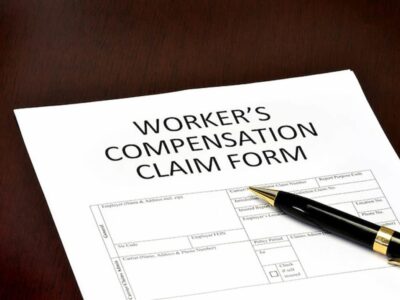As you are aware, loud noises can damage your hearing and cause other physical problems, such as tinnitus and migraines. However, you and other Californians may not realize that chronic noise, even on a quieter level, may have damaging mental effects that affect your ability to perform your job.
Noise in the workplace isn’t always about dangerous decibel levels. In many environments, sound may not be loud enough to cause physical hearing damage, but can still result in psychological strain over time. These mental effects can manifest as irritability, poor concentration, chronic stress, or even trauma-related symptoms like hypervigilance or avoidance.
Understanding Occupational Noise Exposure: Not Just About Volume
A high level of noise is associated with various industries, including law enforcement, construction, mining, and military operations. You don’t have to work in an extremely loud environment to suffer from noise pollution, as the Houston Chronicle explains. All it might take is a busy office or a job with occasional, regular bursts of noise to give you anxiety and other psychological problems.
This is known as occupational noise exposure, which includes:
- Continuous noise (e.g., machinery, fans, HVAC systems),
- Intermittent or impulsive noise (e.g., printer beeps, equipment starts), and
- Background noise such as conversations, music, or ambient office sounds.
From an industrial hygiene perspective, noise exceeding 85 decibels (dB) over an 8-hour time-weighted average may be considered hazardous under OSHA standards. However, even sounds below this threshold, such as those in the range of 55–60 dB, which are common in office settings, can cause auditory fatigue, mental distraction, and psychological stress when exposure is prolonged.
Noise Pollution and Psychological Impact: Legal and Medical Perspectives
For example, you might find it difficult and irritating to concentrate on finishing your deadlines if others in your office are always loudly gossiping and laughing. The constant beeping or clacking of workplace machinery, or the annoying radio station your manager insists on playing loud enough for the whole office to hear, might affect your job performance. Sudden noises might also be common in your workplace, which are not loud enough to damage your hearing but could startle you. Any of these situations might result in chronic stress, irritation, anxiety, and distraction. Some workplace noises might even trigger post-traumatic stress disorder if you suffer from this condition.
Clinically, the mental health effects of chronic noise exposure are associated with:
- Cognitive overload (difficulty focusing or completing tasks),
- Sleep disturbance (especially in shift workers),
- Elevated cortisol levels (long-term stress hormone elevation),
- Development or aggravation of psychiatric disorders, including Generalized Anxiety Disorder (GAD) or Post-Traumatic Stress Disorder (PTSD).
In legal terms, California workers suffering from mental or emotional conditions due to workplace noise may be eligible for compensation if their condition meets the following criteria under Labor Code §3208.3:
- The mental condition is diagnosable and recognized under DSM-5 guidelines,
- Actual events of employment caused the psychiatric injury, and
- Work was the predominant cause (i.e., at least 51%) of the condition.
Medical documentation by a licensed psychiatrist or psychologist is required, and Independent Medical Evaluations (IMEs) or Functional Capacity Evaluations (FCEs) may be ordered to assess impairment.
When Does Stress Become Compensable?
It comes as no surprise that working while being chronically stressed, irritable, or frightened can affect your efficiency and quality of life. A psychological disorder caused by workplace conditions may be eligible for workers’ compensation under certain standards.
However, not all stress qualifies. California workers’ comp law distinguishes between “lawful personnel actions” (such as demotion or disciplinary review) and genuine psychiatric injury due to toxic workplace conditions—including ongoing exposure to disruptive noise.
Some qualifying conditions and examples may include:
- Hyperacusis or noise sensitivity that escalates into avoidance or withdrawal,
- Auditory-triggered panic attacks, especially among workers with past trauma,
- Workplace-induced insomnia, depression, or anxiety disorders are directly linked to environmental factors.
The law also allows for cumulative trauma claims, where no single incident caused harm, but instead, a build-up of stressful or disturbing exposures over time, such as daily disruptive sounds in the work environment.
Common Employer Defenses and How to Overcome Them
Employers or insurers often challenge psychiatric claims, especially when there’s no clear physical injury. They may argue:
- Your condition stems from non-work-related stress (personal, family-related),
- The cause was not sudden or severe enough, or
- The stress arose from reasonable management decisions, such as office policy or scheduling.
However, suppose you can show that the mental injury resulted primarily from environmental exposure (e.g., excessive or unpredictable noise) and not from personal life issues or disciplinary actions. In that case, your claim has a stronger chance of approval.
How to Build a Strong Claim for Noise-Induced Psychological Injury
To qualify, a worker should:
- Document when and how workplace noise became a problem,
- Seek immediate care from a mental health provider familiar with occupational injuries,
- Request a psychological or psychiatric IME,
- Collect testimony or corroboration from coworkers or supervisors if possible, and
- File the claim within the statutory deadline (typically 1 year from the date of injury awareness).
FAQs
Can low-volume noise really qualify for a workers’ comp claim?
Yes. While hearing loss generally requires high-decibel exposure, psychological injuries can stem from ongoing low-level noise, especially when it disrupts sleep, focus, or aggravates pre-existing mental conditions.
What are the symptoms that may arise from chronic noise exposure?
Mental fatigue, irritability, difficulty concentrating, anxiety, disrupted sleep, and emotional sensitivity. In more severe cases, it may escalate to panic attacks or PTSD symptoms.
How do I prove that my mental condition is work-related?
You must show that work was at least 51% responsible for the psychiatric injury. This typically involves an official diagnosis, a comprehensive medical report, and specific details about the work environment and noise sources.
What benefits can I receive if my claim is accepted?
Medical treatment, temporary disability benefits, permanent disability compensation, and in some cases, retraining vouchers or job displacement benefits.
What is the deadline to file a psychiatric injury claim?
Generally, you must report the injury to your employer within 30 days and file a formal claim within 1 year of discovering the condition is work-related.
Suppose you’ve been exposed to chronic workplace noise and are now dealing with anxiety, PTSD, or stress that affects your daily life or job performance. In that case, you may have a valid psychological injury claim—even if your hearing is fine.
Hussain & Gutierrez is a law firm with deep experience in handling complex workers’ compensation claims involving both physical and psychiatric injuries. With our legal expertise and compassionate advocacy, we help clients across California document their case, deal with insurers, and receive the full benefits they deserve.
Don’t wait until your symptoms get worse. Contact Hussain & Gutierrez today for a confidential consultation and take the first step toward justice and healing.



